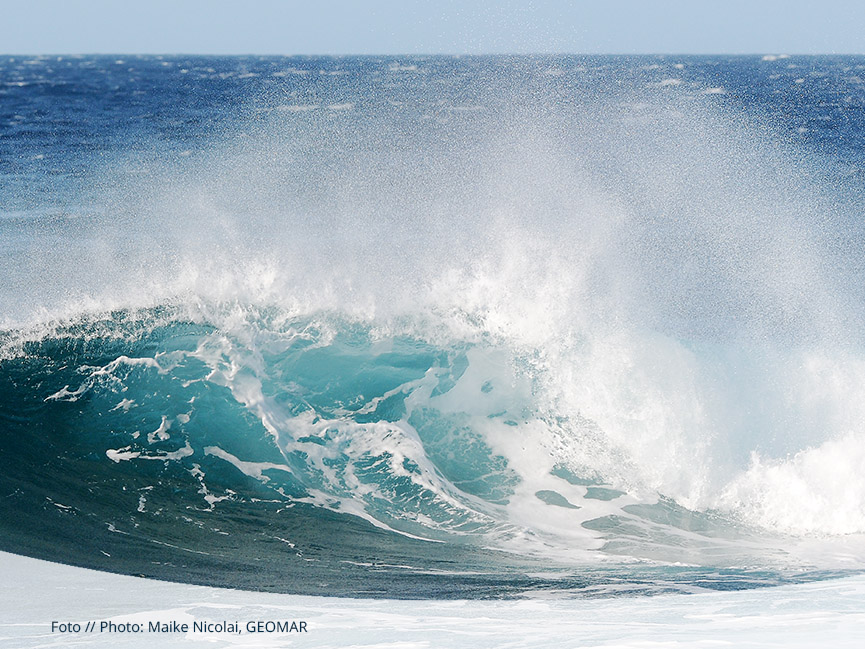
A changing ocean
By taking up carbon dioxide from the atmosphere, the ocean slows down global climate change. But when absorbed by seawater, the greenhouse gas triggers chemical reactions, causing the ocean to become more acidic. The German research network BIOACID has investigated the effects of ocean acidification on marine life and its consequences for society and economy.
Ocean acidification: addressing the other carbon dioxide problem
“The other carbon dioxide problem”, “the evil twin of global warming”, or part of a “deadly trio”, together with increasing temperatures and loss of oxygen: Many names have been coined to describe the problem of ocean acidification – a change in the ocean chemistry that occurs when carbon dioxide (CO2) from the atmosphere dissolves in seawater. On the one hand, the ocean’s CO2 uptake slows down global climate change. On the other, this absorption affects the life and material cycles of the ocean – and all those who depend on it.
Between 2009 and 2017, the German research network BIOACID (Biological Impacts of Ocean Acidification) investigated how different marine species respond to ocean acidification, how these reactions impact the food web as well as material cycles and energy turnover in the ocean, and what consequences these changes have for economy and society. More than 250 members of 20 German research institutes, representing a broad range of marine science disciplines, participated in the project coordinated by GEOMAR Helmholtz Centre for Ocean Research Kiel. BIOACID contributed to the scientific discourse on ocean acidification through more than 580 peer-reviewed publications. Throughout three funding phases, the German Ministry of Education and Research supported the project with a total of 22 million Euros.
As a gigantic carbon sink, the ocean has taken up about a third of the carbon dioxide released into the atmosphere by human activities. As a consequence, the average pH at the ocean surface has dropped from 8.2 to 8.1. This tiny step on the logarithmic pH scale translates into a 30 per cent increase in acidity. At the same time, the ocean absorbs more than 90 per cent of the heat that is generated by the greenhouse effect.
Ocean services under threat
A variety of studies and analyses suggest that ocean acidification and warming affect important services the ocean provides to ecosystems and humankind. This includes the regulation of the Earth’s climate, food provision, recreation as well as biodiversity as a condition for intact and functioning ecosystems. This brochure summarises BIOACID results related to these ecosystem services for political decision-making. It reflects not just a focus on human interests, but also respect for the diversity of marine life. Both perspectives make a strong case for limiting climate change.
READ MORE: Reaching the Paris climate target // Important BIOACID results